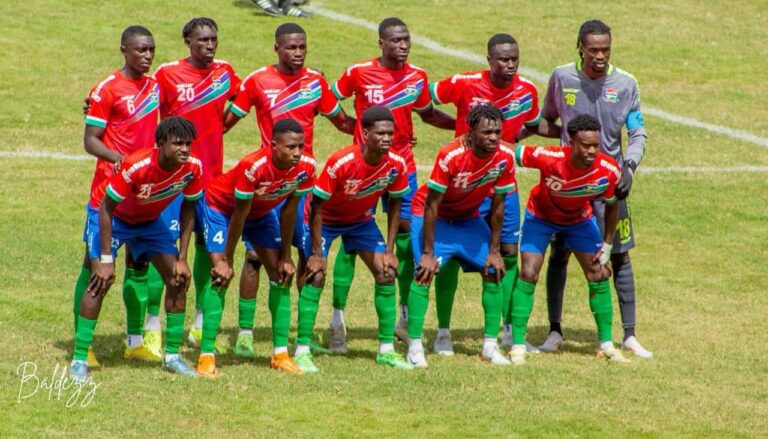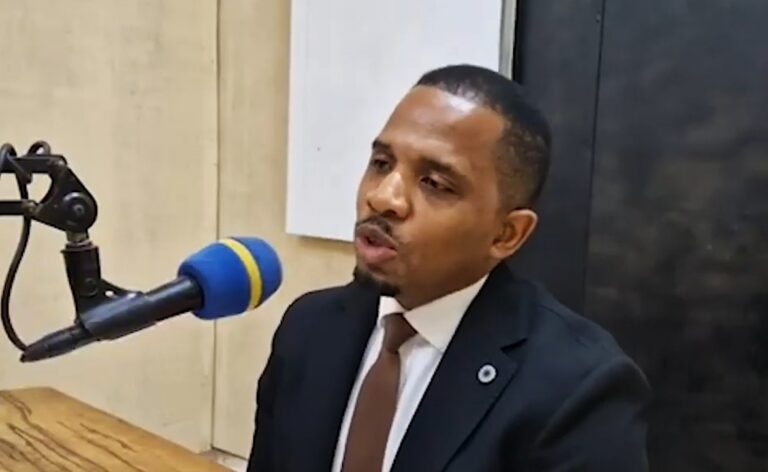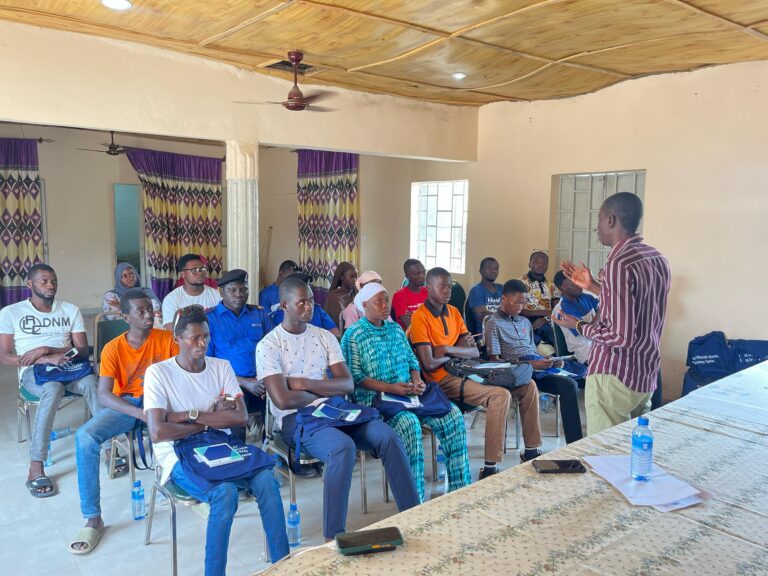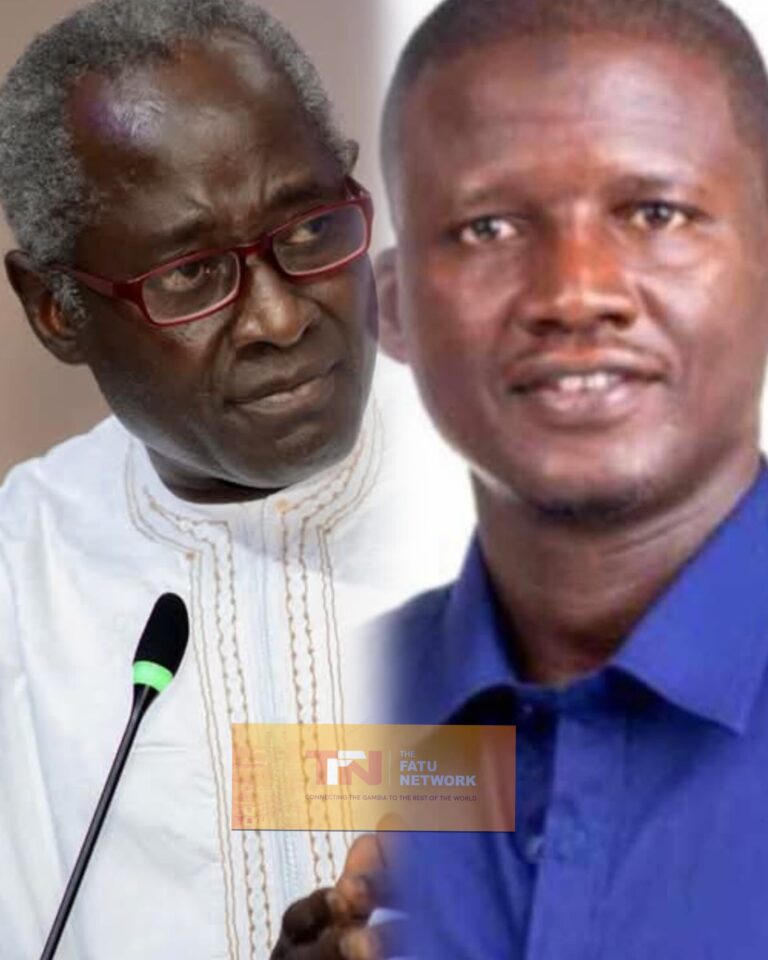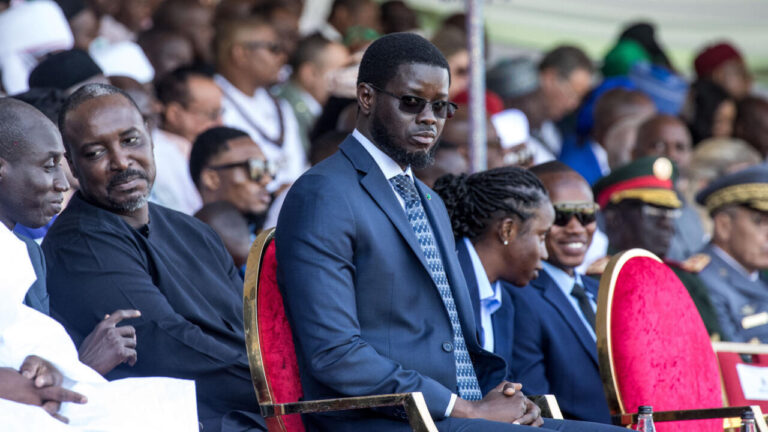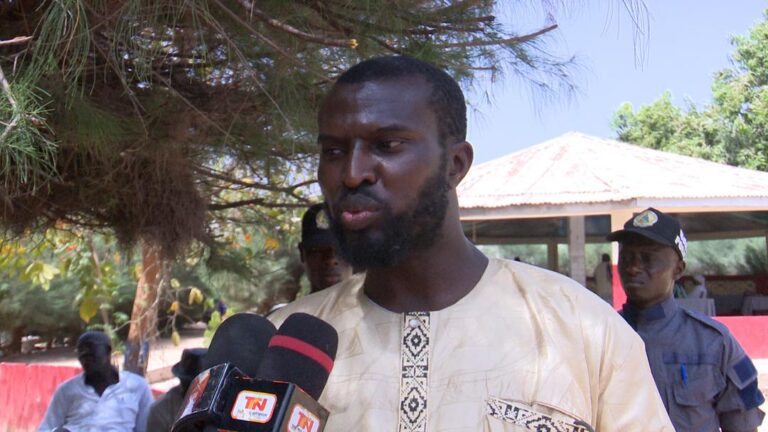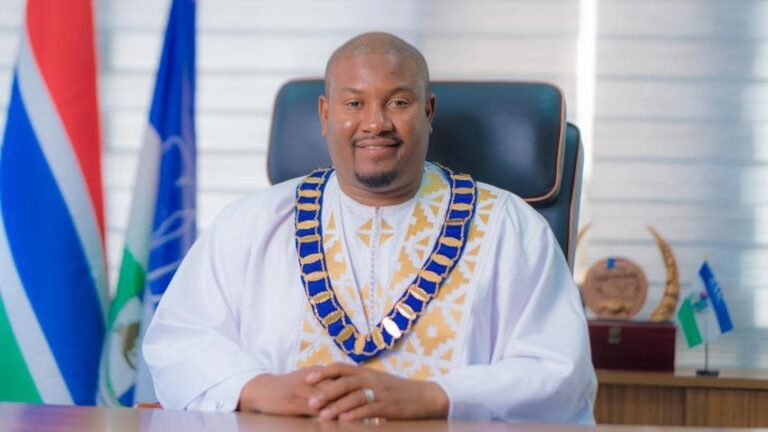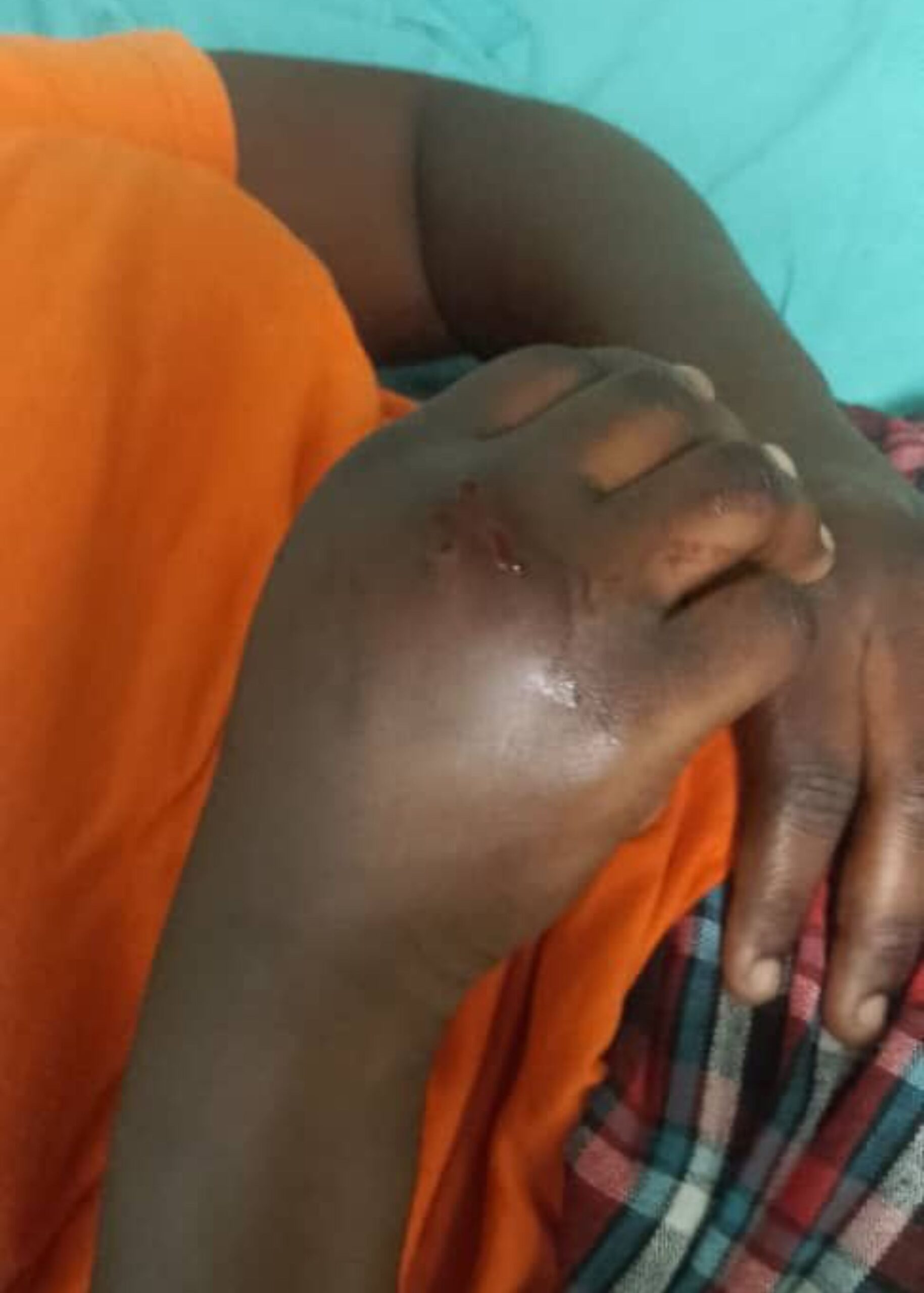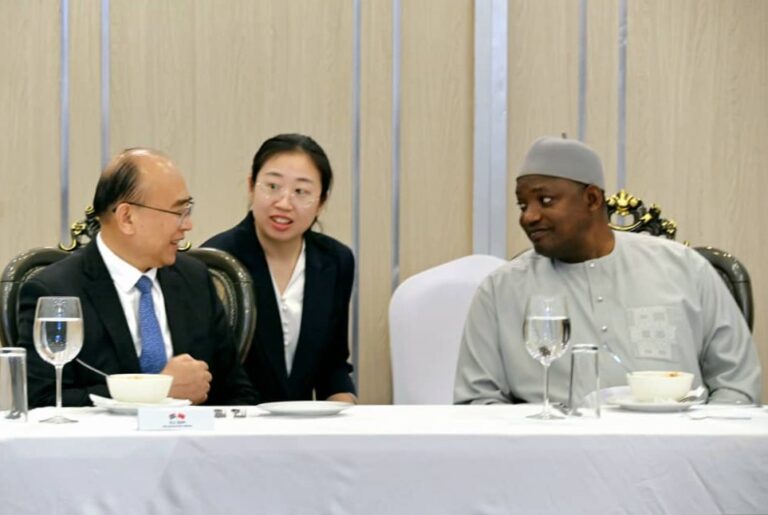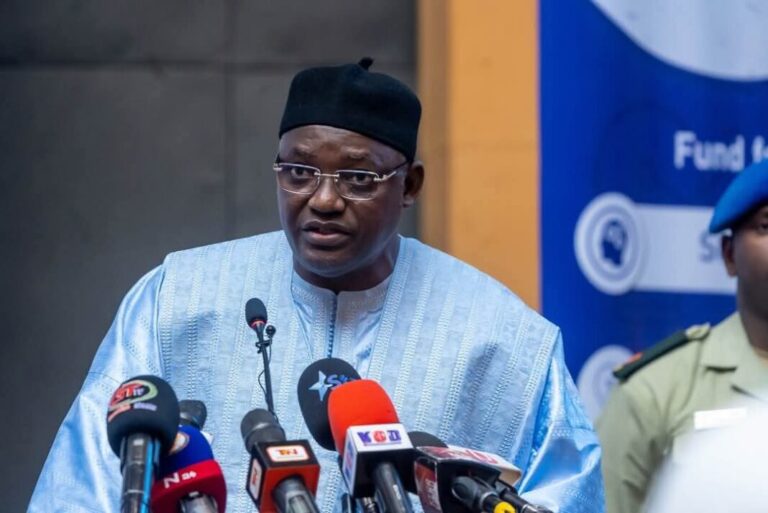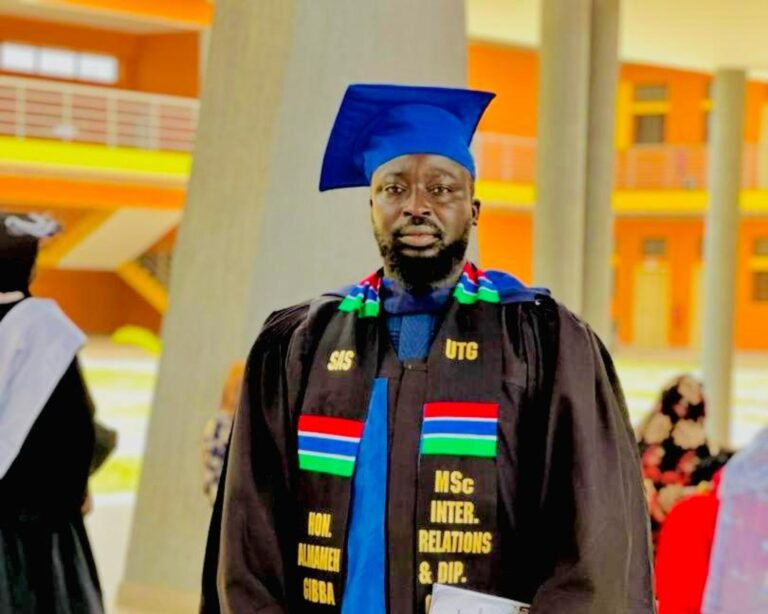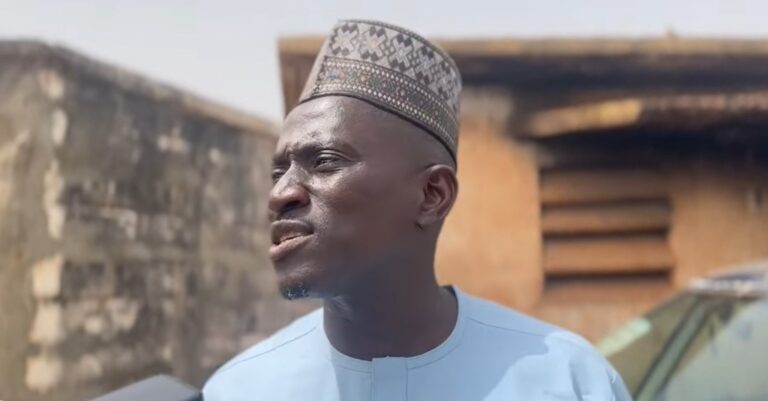By Hadram Hydara
Former Gambian Justice Minister Abubacarr Tambedou has issued a forceful rebuttal to an investigative report by The Republic alleging irregularities in the sale of ex-dictator Yahya Jammeh’s forfeited assets, denying personal benefit, judicial interference, or favouritism toward associates.
The Republic’s April 30 article accused Tambedou’s ministry of circumventing court processes to sell Jammeh’s assets—including luxury vehicles, real estate, and shares—at “a fraction of their worth,” alleging corruption in transactions involving his now-wife Binta Sompo Ceesay’s company, MOAB Capital.
The report claimed officials bypassed procurement rules, manipulated court orders, and allowed politically connected buyers to acquire assets cheaply.
In a 12-point rejoinder, Tambedou dismissed the allegations as “inaccuracies” fuelled by “speculation,” insisting all decisions were lawful and transparent.
Tambedou accused the outlet of selective quoting and ignoring evidence he provided, stating: “They chose to publish… with inaccuracies.” He defended his 2019–2023 decisions as adhering to “rule of law,” stressing Cabinet and judicial approvals.
Below is Tambedou’s full rejoinder verbatim:
Rejoinder to the Article published by The Republic on 1 May 2015 titled “The Assets of Gambia’s former dictator go for a song”
This clarification is issued in response to inaccuracies and the selective use of my responses, which misrepresented the facts in The Republic’s story regarding the sale of the former president’s assets.
Here is a summary of it:
- I have never directly or indirectly benefited from the sale of the assets of former President Yahya Jammeh. The story by The Republic did not contain specific allegations of embezzlement, fraud, or my personal involvement in the acquisition of the assets.
- The MOJ did not use any back-door means to circumvent the court’s decision not to unfreeze Jammeh’s assets. We went back to the drawing board after the court’s initial rejection of our application, obtained new information that supported our case, and filed a fresh application. The Chief Justice appointed a new judge to hear the case.
- The receiver appointed by the court, on the MOJ’s recommendation, was never sacked – much more doing so illegally. The appointment was temporary and lapsed naturally. We hired a new receiver based on a Janneh Commission recommendation.
- I had no prior relationship with Alpha Barry of Alpha Kapital. I became acquainted with him during my tenure as minister, and our relationship developed through his work as receiver.
- Ceesay, who years later became my wife, had no role in the sale of the assets. I was not involved in the allocation of land to her. In fact, the initial plot of land was taken from her. The subsequent allocation was unsuitable for her intended business, so she returned it and requested a refund, which was not fully paid.
The Republic first contacted me on April 25, 2025, with a long list of questions on their investigation into Jammeh’s assets. When I enquired about a deadline, I was told that I had until Wednesday 30th April 2025 – only five days – to send in my response. Despite my busy schedule, I managed to provide The Republic with as much information as I could remember within the deadline, in line with my commitment to upholding the principles of transparency and accountability. I further pointed them to further evidence to clarify some of the wrong information they have, but they chose to ignore it, and published their story – with those inaccuracies – the following day.
I hereby reproduce below my exchanges with The Republic for the record:
* Republic:
The records we have obtained show the Ministry of Justice under you has sacked a Court–appointed Receiver— Augustus Prom, without due process. This was heavily criticised by Justice Amina Ceesay Saho who appointed Augustus Prom. Was this decision of your ministry legal?
- 1. Response:
The court-appointed-receiver, Augustus Prom, who was appointed under the Anti-Money laundering Act and not under the Companies Act, was never sacked or terminated. Based on their previous experience in the liquidation of the Carnegie Company, Augustus Prom was contacted by the MOJ and terms agreed after negotiations. The MOJ thereafter filed an application before the high court for a temporary freezing order and specifically requested the court to appoint Augustus Prom as interim receiver under the Act. The MOJ opted for this approach so that the businesses that were still in operation and which had many people in employment would not be shut down by a total freezing order. We wanted someone to continue with the businesses on a caretaker basis until a final decision is made on those businesses.
As you can see from the decision of the high court issued in May 2017 to freeze the assets, the freezing order was only valid for an initial period of 180 days subject to further extensions. This was why the MOJ kept going back to the court to extend this period. Without these extensions, the temporary freezing order, which included the appointment of Augustus Prom as interim Receiver, would automatically elapse after the expiry of the 180-day period. By granting the MOJ further extensions at the expiry of each 180-day period, the high court accepted that this was how the law operated.
Following the publication of the Janneh Commission Report, the MOJ did not need any further extensions of the freezing order from the high court because from that moment on, the government was to be guided by the Janneh Commission recommendations.
Regarding Augustus Prom, notwithstanding the explicit recommendation of the Janneh Commission that a new receiver be appointed to replace Augustus Prom, the MOJ refrained from immediately terminating the appointment of Augutus Prom in favour of allowing the 180-day period to continue until it elapsed. In other words, the court-appointed-receiver, Augustus Prom, was never sacked or terminated. Instead, his appointment as interim receiver was allowed to continue until its natural end together with the temporary freezing order granted by the high court. Until the specific recommendation of the Janneh Commission to replace Augustus Prom, there were no plans to do so, and Augustus Prom would have likely continued as receiver even though it would not have been pursuant to the temporary high court freezing order which had elapsed.
* Republic:
After the termination of the services of the Receiver, Justice Saho’s court stopped having vital updates on a significant number of assets it froze at the request of your ministry at the time. By terminating the receiver, would you agree that you have removed a vital aspect of transparency that accessibility to court records afford and oversight that a sitting judge who froze the assets would have provided?
- Response:
First, I reiterate that the receiver was not terminated. Second, the role of the high court was limited to the temporary freezing of the assets and the appointment of an interim receiver. As stated above, once the Janneh Commission concluded its proceedings and submitted its Report to the government, and by allowing the period of the temporary freezing order to elapse after 180 days, all other aspects of the order also elapsed including the mandate of the interim receiver, Augustus Prom. To have allowed the high court to continue to have any role, oversight or otherwise, in the implementation of the Janneh Commission recommendations would have been without legal basis or precedent and would, in all probability, have amounted to judicial overreach. The 1997 Constitution is clear as to where the responsibility lies for implementing recommendations of a presidential commission of inquiry and it’s certainly not in the high court (see Supreme Court decision in the Kharafi case).
* Republic:
Justice Saho challenged the legality of the early sales or use of assets of ex-president Yahya Jammeh that were done while the inquiry was ongoing. What do you say to this, as the attorney general at the time, considering a number of sales were done by state institutions such as the Janneh Commission, Sheriff Division and Ministry of Finance?
- Response:
It would be helpful to know how Justice Saho challenged the legality of the early sales or use of Jammeh’s assets. In any case, relevant sections of the 1997 Constitution and the legal notice establishing the Janneh Commission gave the Commission powers to make interim orders as it deemed fit. Therefore, the Janneh Commission’s mandate was sufficiently broad enough to allow it to take measures to prevent further loss or damage to property while the inquiry was ongoing. I cannot recall any sale of assets by the Ministry of Finance while the Janneh Commission inquiry was ongoing. However, assuming even that the Ministry of Finance was engaged in some sales like vehicles while the inquiry was ongoing, I can confirm that the MOJ had advised both the office of the President through the secretary general, and the Minister of Finance at the time, that the vehicles that were found on State property including at the State House, should be presumed to be vehicles belonging to the State until the contrary was established. It may well be that it was based on this advice that the Ministry of Finance took over legal responsibility of the luxury vehicles as the Ministry responsible for assets acquired for use by the government. Therefore, as the court freezing order only affected assets that belonged to former President Jammeh and associates etc, the vehicles that the Ministry of Finance took over belonged to the category of assets which would have fallen outside the scope of the freezing order and that the Ministry of Finance could not have acted illegally in so far as they followed established government procedure in the sale of these vehicles even if the sales occurred while the Janneh Commission inquiry was ongoing.
* Republic:
In 2018, the ministry of justice made an application before Justice Amina Ceesay Saho to release a number of lands belonging to ex-president Yahya Jammeh within the Tourism Development Area. This process followed a letter you wrote to the Commission requesting for the release of the same plots. Justice Saho refused. Your ministry, instead of appealing Justice Saho’s decision, brought the same application before a vacation judge, Justice Ebrima Jaiteh, and got him to release the TDA plots without informing him of Justice Saho’s decision. Justice Jaiteh confirmed to us this was an abuse of process. Do you agree?
- Response:
I disagree that submitting two separate applications before courts of similar jurisdiction could be qualified automatically as an abuse of process. To simplify a complex legal process, allow me to give an example to illustrate that this was not an uncommon approach. For instance, if we take the example of bail applications, a refusal of an application for bail by the high court allows an applicant to appeal the decision but at the same time it does not preclude the submission of a fresh bail application again before the high court even though the option of appeal against the previous refusal is still available to an applicant. However, there are conditions for this approach including the establishment of a new fact or additional information which was not provided in the first bail application.
Similarly, in the case of the applications for the release of TDA lands, and upon the refusal of the first application by Justice Saho, the MOJ submitted a second fresh application again at the high court with additional information and arguments. It was not a case of res judicata. I encourage you to compare the two applications submitted by the MOJ for the release of the TDA lands for their differences. One can only assume that Justice Jaiteh granted the State’s application based on the merits and facts presented to him. Otherwise, if Justice Jaiteh would have considered other extraneous factors in arriving at his decision on the application, that would have amounted to an abuse of discretion by the judge. In any case, a legal position adopted by a high court judge does not legally foreclose that matter.
Moreover, it is rather unfortunate that the approach taken by the MOJ is being made to look like something done in bad faith by linking the timing of the new application to the court vacation period. Justice Saho’s refusal decision was issued on the last day of the legal term on 30th July 2023 before the start of the high court vacation on 1st August 2023. The MOJ submitted a second fresh application which fell during the court vacation that started on 1st August 2023, only a day after Justice Saho’s refusal decision was issued on 30th July 2023.
In any event, this was a genuine legal process in which the State made an application before the courts, and it is for the parties in legal proceedings to determine the legal strategies that represent their best interests in the process and not any judge. The MOJ considered all options and decided to submit a fresh application having regard, among other things, to the reasoning contained in the first refusal decision.
Furthermore, the MOJ is not responsible for the assignment of cases at the high court. As far as I know, that is the responsibility of the Chief Justice and the MOJ could not have known which judge the second application was going to be assigned to. For all that the MOJ knew, the second application could have also been assigned to Justice Saho for her consideration. The MOJ therefore had no control whatsoever over which Judge gets assigned which matters.
Finally, I have always adhered strictly to judicial decisions. Even when the court of appeal issued its unprecedented decision in the kharafi case requiring, for the first time under Gambian law, an additional procedure before the government white paper could be implemented, I was the one who advised the president and government to unilaterally suspend the sale of the assets pending the outcome of an appeal to the Supreme Court even though the government could have continued with the sale of the assets because Jammeh was not a party to the kharafi proceedings neither was the sale of his assets the subject of the court of appeal decision. There was nothing in the kharafi decision that required the government to stop the sale of the assets and if I or anyone close to me had had any vested personal interests, I would not have advised for the immediate suspension of the sale of the assets. I took this position based on my strong adherence to and respect for the rule of law, and the need to safeguard the rights of Jammeh himself (yes, even Jammeh has rights) against any potential prejudice. As a matter of fact, the court of appeal decision in the Kharafi case remains an isolated case. There was no precedent for it and no other court in the country has followed it since. Ultimately, the Supreme Court of the Gambia, in July 2021, vindicated my position on the law by overturning the Kharafi court of appeal decision, and ruling that no additional procedure was required by the government to implement its white paper.
* Republic:
Our assessment of records of the Janneh Commission and the High Court has shown that, included in the list of plots Justice Jaiteh released was a 6.10-hectare land, with leased number K355/2009, stretching from Djembe Beach to Palma Junction. At this location, MOAB Capital— owned by a one-time friend of yours whom you now married, Binta Sompo Ceesay, was allocated a plot. A parliamentary inquiry later found that this plot was even allocated to Binta without due process, expressing doubt if she would have even paid the 5% levy had GT Board staff not filed a petition to parliament to investigate, among others, the allocation. Haven’t you abused a court process to release a land that comes to benefit a close friend who, according to parliament, was allocated without due process?
- Response:
Let me start by making this very clear: at no time throughout my time as AG did I ever make any decision based on my personal interests or those associated with me. All the decisions that I made were based on impartial and professional reasons which could objectively be justified.
The decision to seek the release of the TDA lands was a government decision. The MOJ was instructed by Cabinet to seek the immediate release of the TDA lands for two principal reasons: first, this would allow for the urgent allocation of the lands by The Gambia Tourism Board to several investors that were flooding into the country at the time including the FTI group which had plans to build a five-star hotel, and to enable the government demarcate an ideal location for the construction of infrastructure for the impending OIC summit; second, and more generally, the government wanted to be able to deal with State lands unhindered and unrestrained. At that time, the government was mostly motivated by the potential for job creation that comes with the construction of new hotels. Groups like FTI had a history of investments in the country and the government was eager to facilitate their quick return. The FTI group, which was equally eager to return to the country, had even identified potential locations for the construction of their five-star hotel. Unfortunately, the locations they had identified fell within the frozen TDA Jammeh lands.
The government was convinced that unlike other private properties that Jammeh had acquired, the TDA lands will ultimately revert to the State either by recommendation of the Janneh Commission or by some other State action since the allocations were prima facie unlawful in the first place. So, together with the imperative to allocate land to potential investors, the government decided not to wait for the conclusion of the Janneh Commission proceedings which was taking longer than anticipated before dealing with this special category of frozen land. It became a question of when and not if the TDA lands would revert to the state. In such an inevitable situation, the government decided to act to the benefit of the country’s tourism industry. Based on these reasons, the MOJ was instructed by Cabinet to seek the immediate release of the TDA lands.
Given the above, it is out of place to contend that I abused a court process to release a land that comes to benefit a close friend. This contention is particularly absurd when one considers that the application by MOAB Capital for land allocation occurred in 2019, one year after the release of the TDA lands in 2018. Therefore, there was no abuse of court process and there were no personal motivations.
* Republic:
We have interviewed a number of GT Boards who filed a petition to parliament to investigate the land allocation to MOAB and others. And one of them who directly worked on the process told us that when they raised the irregularities associated with the allocation, the former GT Board director Abdoulie Hydara told them that the plot was allocated to the Attorney General Abubacarr Tambadou. What do you say to the allegations that the plot allocated to MOAB was yours and that the company was a front?
- Response:
I can confirm that the plot allocated to MOAB was not mine. If I wanted land to be allocated to me for investment purposes in the TDA, I would have done so in my personal capacity. There is no rule of law or government practice that prohibited this. On the contrary, the policy and precedent of allocating government land to public officials is well known. However, since I might have, on a few occasions, innocuously enquired about progress in the matter on her behalf, I will not rule out the possibility that this could have created the perception that I was an interested party. In any event, this matter is no longer relevant as Ms Ceesay, on my advice after we got married, had since abandoned her interest in any GTB land allocation including her rejection of land that was recently allocated to her by the GTB in the Tanji area.
* Republic:
Alpha Barry, according to the testimonies we have, is an acquaintance of yours, so was Binta Ceesay who, according to many witnesses we spoke to, served as a sales agent in the auction being conducted by Alpha Kapital. Isn’t it conflict of interest when your actions or decisions go to benefit people close to you?
- Response:
Ms Ceesay had no role whatsoever in the sale of the assets. It makes no sense to attribute the role of a sales agent in a closed bidding process. How does that work in practice? What would be her role in such a process? Sometimes people say things without much reflection. How can there be a sales agent in a closed bidding process? For your further information, this is how the Jammeh assets sale process unfolded at the time, and you decide how else anyone outside could have played any role in this process:
- The decision to forfeit and dispose of the assets was based on recommendations made by a legally constituted presidential commission of inquiry (the Janneh commission) established pursuant to the 1997 constitution in order to, inter alia, recover monies misappropriated by Jammeh and his close associates
- This recommendation was accepted without reservation by the government through the White Paper issued in reaction to the Janneh commission report as required by the 1997 constitution
- Cabinet thoroughly reviewed every sentence on every page of the draft White Paper and extensively deliberated to reach consensus on all recommendations including the forfeiture and disposal of the assets
- Every option for the implementation of the assets recovery process was carefully considered including through the possible use of the Assets Management and Recovery Corporation(AMRC) of the government which was ruled out because, in addition to the limitations placed on its jurisdiction in the establishment Act, the AMRC itself was also the subject of inquiry by the Janneh Commission which made specific adverse findings against certain managers of the Corporation who were complicit in Jammeh’s unlawful acquisition of AMRC properties. Therefore, there was an obvious conflict of interest. Furthermore, the Janneh Commission concluded that but for lack of adequate time, it would have inquired further into AMRC activities, and recommended that the government conduct this inquiry
- The President thereafter established a Ministerial Committee to supervise the process of sale of the assets on behalf of the government and to handle third party claims over properties as recommended by the Janneh commission
- The ministerial committee in turn established a Technical Committee, comprising the solicitor general, and permanent secretaries of the ministries of finance, lands, tourism and agriculture, to review the list of all the assets in the Janneh commission report for various potential usages and make recommendations in a report to the ministerial committee for approval and/or endorsement. A report was prepared and submitted as requested.
- The recommendations for sale of any asset made by the technical committee in its report was reviewed, discussed and, where appropriate, approved and/or endorsed by consensus of the ministerial committee comprising the ministers of justice, lands, tourism and agriculture.
- These ministries were identified based on the locations of the properties listed in the Janneh commission report and the jurisdiction over land administration in the localities such as the tourism development area, the agricultural farms etc
- To maintain the integrity of the process, the minister of finance at the time was excluded from the ministerial committee to avoid a conflict of interest as he was the subject of a specific adverse finding by the Janneh commission and was consequently sanctioned by the government through the White Paper as recommended by the commission.
- Nevertheless, the ministry of finance was a critical partner in this national assets recovery process and since the permanent secretary at the ministry of finance at the time was unaffected by the Janneh commission findings, he was included in the technical committee
- The sale of any assets was conducted only after these inter-ministerial consultations at both the technical and ministerial levels and only after final approval by consensus of the ministerial committee
- A new receiver, Alpha Kapital Advisory, was identified and appointed to replace the previous receiver, Augustus Prom, as recommended by the Janneh commission. The new receiver was thereafter instructed by the Ministerial Committee to proceed with the public auction of properties specifically identified by the Ministerial Committee.
- The two successive receivers were locally renowned and internationally recognized, credible, and respected professionals in their field and both were paid the standard industry practice fee of between 5-10% commission, inclusive of taxes and other costs, and based on the various activities to be undertaken. This was also based on a precedent set by the government in the liquidation of the Carnegie company. (See also the Republic article on the offer for sale of the aircrafts by US-based Viridis Aviation Partners).
- All the assets were initially valued by government valuers under the instructions of the Janneh commission during its proceedings and the valuation price of each property was reflected in the Janneh commission’s report which is publicly available
- A second valuation of the assets was conducted by an independent professional valuer under the instructions of the new receiver
- The sale of the assets was thereafter conducted by public auction (in the form of a closed bidding process) as recommended by the Janneh commission and accepted by the government through the White Paper
- The higher price of the two different valuations conducted by the Janneh commission and the receiver, respectively, was used as the baseline price for each property sold by public auction, and this basic fact can be established by a simple comparison of the valuation prices of each asset listed in the Janneh commission report and the ultimate sale price of the asset. These facts are easily verifiable.
- All the assets sold were advertised in local newspapers or through the website created by the receiver for this sole purpose and in order to attract the most responsive bids locally and internationally
- The sealed bids for the sale of the assets were all opened in the office of the solicitor general in the presence of other Ministry officials. I was never present and none of my family members or friends at the time had bought any of the assets.
- The receiver submitted periodic reports to the Ministerial Committee on the progress of the sales.
Regarding my relationship with Ms Ceesay, please note that as far back as 2010 (evidence available), I hired and appointed her as my agent to rent out my property situated in Bijilo while I was living and working abroad. She successfully rented out the property to the Resident Rep of the International Monetary Fund (IMF) in The Gambia and continued to manage the property on my behalf at an annual fee for her services. This was the start of our professional relationship. She was also acting for other members of my family particularly my brothers and was managing some of our family properties for a fee. She therefore had a historical relationship with my family. This professional relationship continued after I became a Cabinet Minister in 2017. Even though I was now back in the country, I still engaged her services to continue to manage my property.
Sometime around mid 2019, I instructed Ms Ceesay, at a fee, to sell a family property located in Fajara Golf Course. She identified a buyer for the property and negotiated a price which was paid by the purchaser, one Abdou Sanyang (who can be reached by telephone on xxxxxxx phone number was provided to The Republic). The purchaser was represented by the late Bola Carrol. A deed of assignment was duly executed, and a copy can be provided if requested, as well as a copy of the Power of Attorney that was given to Ms Ceesay to execute the sale. By sheer coincidence, this private land sale transaction occurred around the time that the sale of Jammeh’s assets had commenced. The poor lady would have been seen around my office especially in the second half of 2019 when she was helping to facilitate the sale of a private property. As this period also coincided with the sale of the Jammeh assets, it, most likely, must have given rise to the speculations that she was somehow involved in the Jammeh assets sale process whereas this was utterly untrue. It was a mere temporal coincidence between a private land sale and the sale of the Jammeh assets, nothing more.
Regarding my relationship with Mr Alpha Barry, I note that the question you have asked is premised on the assumption that the appointment of Alpha Kapital was done in my personal capacity. That is incorrect. While the MOJ might have been the focal point ministry and had conveyed the appointment of Alpha Kapital, this was done on behalf of the Ministerial Committee which approved the appointment and not in any personal capacity.
In any event, I first met Mr Alpha Barry in my office in 2018 when he came as part of a delegation from the FTI group together with Mr Mustapha Njie of TAF Global and others. If I recall correctly, they had come to discuss about the likelihood of the release of the TDA lands and possible timelines as the FTI group had urgent plans to build a five-star hotel in an appropriate location. I believe that they were referred to me by my ministerial colleagues. Up until this point in time, I had never had any sort of relationship, personal or professional, with Mr Barry, let alone describe the relationship as an acquaintance. Before this first encounter, however, I had heard much about him when he was a senior partner at Deloitte and Touche, a renowned international chartered accountancy firm with a branch in The Gambia. It was only in the course of his work as receiver that Mr Barry and I developed a closer relationship, and this is not an isolated case. In the course of my time in office, I have cultivated many personal relationships with people that I had no previous connections to.
* Republic:
In an appearance before the lawmakers in 2020, you claimed that Alpha Kapital was recommended by the Janneh Commission. We spoke to staff and one commissioner of the Commission. They denied any knowledge of recommending Alpha Kapital to handle sales of the assets of the former president. Did you deliberately misinform the parliament to justify hiring Alpha Kapital?
- Response:
I have never for a single moment misinformed the National Assembly on this or any other matters and I believe that you might have misunderstood my statement at the National Assembly. I had clearly said that in accordance with the explicit and specific recommendation of the Janneh Commission, a new receiver, Alpha Kapital, was appointed to replace Augustus Prom. In other words, it was the explicit recommendation of the Janneh Commission to appoint a new receiver and replace Augustus Prom, and that Alpha Kapital was appointed by the government as a result. This was what I had conveyed to the National Assembly. For ease of reference, please find the statement I made before the Assembly in 2020: “In July 2019, based on the recommendation of the Commission, Alpha Kapital Advisory, a reputable local chartered accountancy firm, was appointed to take over from Augustus Prom, another reputable local accountancy firm”.
* Republic:
Alpha Kapital was hired to execute sales of assets and shares in businesses that were forfeited to the state. Don’t you think that a hire for such services should have been done transparently and through mechanisms laid out in the GPPA Act? Would you agree Alpha was hired to RENDER SERVICES to the government which was to reward him millions and should therefore be advertised?
- Response:
The appointment of a new receiver, Alpha Kapital, to replace Augustus Prom was an explicit and specific Janneh Commission recommendation directed at the government. It should be noted that in many respects, commissions of inquiry have powers equivalent to that of the high court. In this case, the Janneh Commission limited itself to the recommendation for the appointment of a new receiver by the government which had the constitutional and legal mandate to implement the said recommendation. This gave the government sufficient grounds to identify and appoint a receiver without subjecting this action to another process. Furthermore, due to the special nature of commissions of inquiry, and the implementation actions flowing therefrom, no appointments, including that of commissioners, counsel, or executive secretaries, is advertised even though it could also be argued that they “render a service” in a broad sense. This was the case for appointments to similar positions held in the Janneh Commission. Also, when Augustus Prom was identified by the MOJ to the high court for appointment in the freezing order, no advertisement was done. Similarly, when the Janneh commission appointed Augustus Prom first, and then later, Foresight Accountancy and Audit Partners as temporary receivers for the Ocean Bay and Sunbeach hotels, no advertisements were done. The point here is that given the sensitive nature of assets recovery processes in general, the exercise usually involves a high degree of confidentiality, and more importantly, demands trust in the reputation, integrity and independence of the entity undertaking the recovery process. Consequently, it is difficult to find any jurisdiction around the world where appointments in a national asset recovery process are subjected to public advertisements. Even when the government identified entities abroad to assist with the asset recovery process outside the country, this was not subjected to a public advertisement.
* Republic:
In the sale of the assets of the former president, we noticed that there were a number of assets and shares, amounting to hundreds of millions, that were transactions conducted between the receiver (Alpha Kapital) and the government institutions like Gambia Ports Authority, Social Security, Central Bank, among others. In the light of the fact that these assets and shares could simply be transferred, were these transactions not just meant to generate the receiver money?
- Response:
As you know, the government and SOEs are separate legal entities. They are not legally the same entity. Therefore, their respective assets cannot be simply transferred from one to another without a legal process, reason why government sometimes borrows money from SOEs like SSHFC or gives loans to others like NAWEC instead of simply transferring monies. Consequently, the act of simply transferring forfeited assets belonging to the state to these SOEs at zero cost would have been unlawful and would have meant the loss of income for the government. The sale of the assets to the SOE’s was therefore lawful and it was the duty of the receiver to conduct these sales in accordance with their mandate.
*Republic:
In our assessment of the report on the sale of Jammeh’s assets, we realised a property belonging to Bubacarr Sompo Ceesay was sold back to the family for only D150, 000 more than the price Jammeh bought it for 15 years ago. Sales report released by your ministry has shown this property was valued. Wasn’t this property given to the Sompo at a giveaway price, considering Jammeh (through Kanilai Family Farms) bought this through a legitimate transaction of a Judicial sale by the Sheriff of the High Court?
- Response:
Here are the facts on this issue:
The Ministerial Committee (see Response 7(5) above) was also mandated by the President to handle pending 3rd party claims to some of the forfeited properties as recommended by the Janneh Commission. Based on this, the Committee divided the 3rd party claims in three broad categories:
- Claims which are currently the subject of ongoing litigation at the courts.
- Claims made by persons whose properties were the subject of a judicial sale by the Sheriff.
- Claims by others who had, on the face of the record, voluntarily sold their properties to former President Jammeh.
- Claims which are currently the subject of ongoing litigation at the courts
This category affected about 18 properties. The category stemmed from claims that President Jammeh forcefully acquired the said properties from their owners. They include 15 properties that originally belonged to Baba K. Jobe and one claimed by Banta Kaira. The Ministerial Committee decided to allow the legal process to continue to its logical end without interference.
- Claims made by persons whose properties were the subject of a judicial sale by the Sheriff
This category affected 4 properties. The category stemmed from complaints by 3 claimants that President Jammeh, with the complicity of the Sheriff’s Division of the High Court at the time, deliberately undervalued their properties with the specific objective of enabling President Jammeh to acquire same below the fair market value at the time. They included the Futurelec building, one property that belonged to Modou Peulh, and two properties that belonged to Baboucar Sompo Ceesay. The Ministerial Committee decided that in order to resolve these third party claims on a win-win basis for all, the claimants should be given the right of first refusal to purchase back the said properties at the same price that was paid by President Jammeh, plus the cost of improvements to the properties, if any, which is to be determined by an independent valuer, and the valuation fees, all of which shall be added to the purchase price of the properties. This decision ensured that this category of properties would have effectively been sold for twice the price that President Jammeh had paid for them, half the price having already been paid by President Jammeh and the other half to be paid by the claimants. Accordingly, Futurelec, Modou Peulh, and Baboucar Sompo Ceesay were offered the opportunity to re-purchase their properties and were given 30 days from the date of notification to do so in one full payment, and that the properties shall only be transferred to their proper names failing which the opportunity will be withdrawn from them. To the best of my knowledge, only one of the two properties was re-purchased by the Sompo Ceesay family on these conditions.
- Claims by others who had, on the face of the record, voluntarily sold their properties to former President Jammeh
This category stemmed from claims by those who, on the face of the record, voluntarily sold their properties to President Jammeh but who were now claiming that the circumstances under which they were made to sell their properties, notwithstanding the appearance of free will, were coercive or made under duress or with threats. The Ministerial Committee was yet to decide on this category of claimants, but it seemed in all likelihood at the time that the claims under this category would be decided on a case-by-case basis depending on the individual circumstances of each case.
- The Ministerial Committee was also aware that at least in one case, the Janneh Commission had recommended that the claimant, Ms Ida Faal, wife of the late Jobe Dollar, be given an opportunity to purchase back the family property on Kairava Avenue within one year because of the special circumstances of her case. This recommendation was accepted by the Government in its White Paper. The Ministerial Committee had endorsed this approach and Ms Faal was deemed to have been given a period of one year from the date of publication of the Government White Paper to complete payment for the said property failing which the Government reserved the right to take action on it.
* Republic:
A letter we saw suggests this transaction was paid for by Binta, though the property is now in the names of the three children she had with Mr Sompo. Isn’t it the case that she is also an indirect beneficiary of this ‘fire sale’?
- Response:
There was no “fire sale”. I refer you to my response above. If a decision was made at the time by the family to put the names of their children on the property, then that is a private matter that I cannot comment on.
Ba



